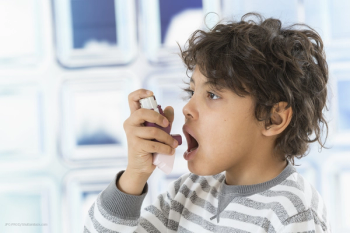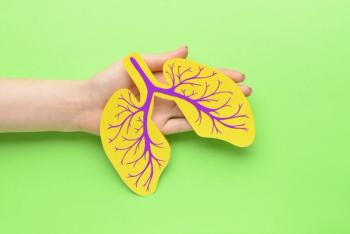
Fluctuations in Sex Hormones May Drive Asthma Symptoms in Women
Asthma becomes more prevalent in females than males in puberty. Researchers have hypothesized that sex hormones may play a significant role in the manifestation of asthma symptoms.
In childhood, asthma is more prevalent in boys than in girls (11.9% vs. 7.5%). However, at puberty, the trend flips. In adults, the incidence of asthma in men is 6.3% versus 9.6% in women. Additionally, women with asthma are more likely to have severe asthma and be hospitalized compared with men who have asthma.
Given the age range at which females surpass males in asthma prevalence, researchers have hypothesized that sex hormones may play a significant role in the manifestation of asthma symptoms.
In women, sex hormone levels fluctuate during puberty, the menstrual cycle, pregnancy, and throughout menopause. A review published by Guo-Qiang Zhang and colleagues in February 2022 in the
The onset of puberty marks the point at which asthma prevalence is greater in females than in males. Zhang and colleagues found that women who experience early menarche had a higher risk of developing asthma after puberty than women who began menstruating at a typical age (11-13 years). Some researchers speculate that a greater exposure to estrogen at an earlier age may contribute to the increased asthma risk.
Up to 13% of women worldwide experience changes in asthma control during pregnancy, and one-third report worsened symptoms. These women typically return to their pre-pregnancy lung function by three months post-partum. However, the authors comment that awareness of this potential shift in asthma symptoms may help prevent certain pregnancy complications, including pre-eclampsia, low birth weight, and increased risk of newborn mortality.
When looking at potential protective or therapeutic effects of sex hormones, Zhang and colleagues found that exogenous hormones, such as hormonal contraceptives, improved asthma symptoms in some women with PMA. For menopausal women, there is conflicting evidence on the effect of hormone therapy on asthma symptoms, and the authors conclude that more research in this area is needed. They comment, “Collectively, evidence is accumulating that sex hormones may modulate the pathogenesis and clinical manifestations of asthma. Further well-designed randomized trials assessing the potential preventive or therapeutic effects of hormonal contraceptives on asthma in women will help to advance the evidence to inform future practice guidelines.”
Newsletter
Get the latest industry news, event updates, and more from Managed healthcare Executive.























